WE ARE DELIGHTED TO ANNOUNCE
THE MARILYN STAFFORD FOTOREPORTAGE AWARD
SHORTLIST 2025
SUPPORTED BY NIKON
IN ALPHABETICAL ORDER
(by first name)
ANA CAROLINE DE LIMA
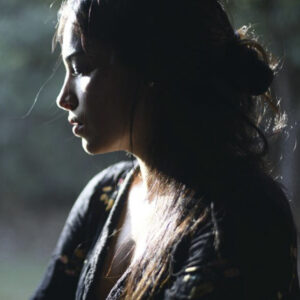
Ana Caroline de Lima is a Brazilian photographer, journalist, anthropologist, and National Geographic Explorer. Her work centres on the close and often complex connections between people and the environment, particularly within rural and Indigenous communities. With projects spanning from the Amazon to the Andes, as well as Europe and Asia, she explores themes such as social bioeconomy, the climate crisis, and rural migration. Rooted in the Cerrado biome through her mother, Ana brings a personal connection to the land and its stories. Her work has received national and international recognition, with exhibitions in over 20 countries and features in publications including the National Geographic Society, GEO and the Royal Photographic Society. Through photography and storytelling, Ana highlights the resilience of communities while exploring responses to today’s environmental challenges. Her work is grounded in real stories, aiming to inspire informed, solution-driven action rooted in both conservation and social justice.
I CHOOSE TO STAY

Denilson lives in the Cerrado, South America’s second-largest biome – critical for biodiversity and freshwater security. As drought, wildfires, and industrial agriculture push many families to leave, he chooses to stay, believing it’s possible to earn income sustainably. Denilson collects native fruits and plants that grow naturally in the wild, often overlooked or left to decay. He involves villagers in this process, creating income that helps conserve the biome. In the same state, community-run cooperatives build sustainable income streams using similar methods. By partnering with organisations focused on ethical supply chains, they use what already exists, creating a regenerative cycle of conservation and commerce – focusing on natural resources over monocultures. In 2024, the Cerrado lost 7,120km² of native vegetation – the highest deforestation rate in Brazil that year. I will document Denilson’s efforts, challenges, and their impact on his family, community, and environment. This story aims to showcase impactful strategies, and share real examples from resilient economies, showing how sustainable livelihoods and environmental health go hand in hand.
ANDREA HERNÁNDEZ BRICEÑO
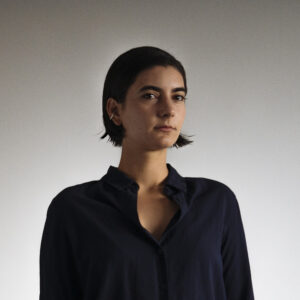
Andrea Hernández Briceño is a Venezuelan journalist, visual storyteller, Magnum Foundation fellow, TEDx speaker and National Geographic explorer based in Caracas. She tells representative stories about gender, environment and social phenomena that put the dignity of participants in the centre of the narrative while using different formats and a perceptive approach to magic. She was awarded the Women Photograph grant in 2024 and two POY Latams (2023). Hernández Briceño co-founded the women’s collective Ayün Fotógrafas. She teaches the Ojo Pelao and MiraVzla free workshops, making photography education more accessible in her country. She believes in the importance of creating alliances with communities through horizontal practices that combine education and storytelling initiatives. Her work explores narratives that search for humanity in the space between seemingly opposing ideas as a direct result of growing up, documenting and resisting in Venezuela, a place of deep contradictions.
FIRE BECOMES SPIRIT
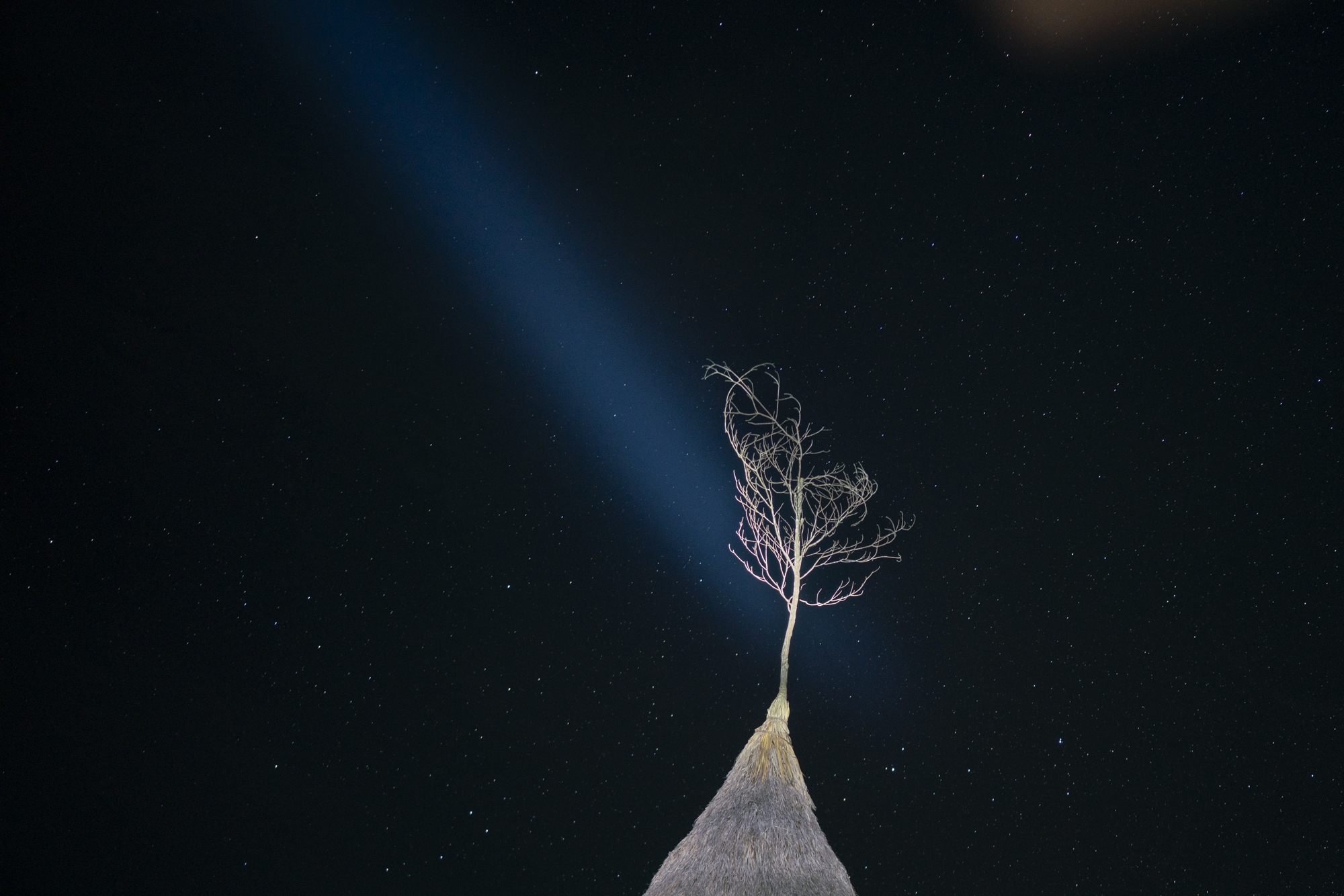
From a bird’s view, the Venezuelan Amazon rainforest looks like scratched skin. For decades it has been dug and broken by the booming mining industry. At the beginning of the gold fever, many indigenous communities resisted, but in the aftermath of transculturation and violence perpetrated upon them by authorities and different groups that operate in the area, most have joined the mining efforts. But the leader of the Huöttöja people that inhabit this territory, shaman Jattupa, has a vision for the future: the only way to save humanity is to demarcate and protect the Cataniapo river in the Venezuelan Amazon rainforest and exchange knowledge. This exchange has taken the form of workshops that centre around the power of photography and how this tool that has mostly been used to exploit them can be yielded to dismantle the colonising gaze.
ANYA TSARUK
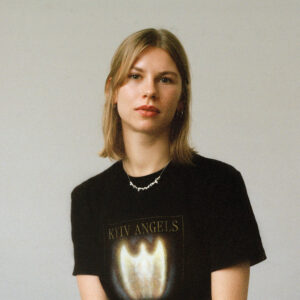
Anya Tsaruk is a Ukrainian photographer based in Berlin. Following the full-scale Russian invasion of Ukraine, her work now focuses on the themes of identity, trauma, migration, and community. Through photography, she aims to raise awareness about the war in her homeland and honour the resilience and strength of people impacted by it. Anya has a BA in Culture and Media Management from Jagiellonian University (2016-2019), Kraków and has won numerous awards including The Photography Foundation Awards – Portraits & People, winner 2025, Nikon Fotobus Grant winner, first place 2024, The Ukrainian Association of Professional Photographers grant winner 2024, The V&A Parasol Foundation Prize for Women in Photography winner 2023.
I HOPE YOUR FAMILY IS SAFE

I Hope Your Family is Safe is a project about my loved ones living in Ukraine, inspired by the well-meaning but unsettling phrase often said to me by foreigners. The work explores the layered and uncertain meaning of ‘safety’ in a country in war. The project challenges mainstream representations of contemporary Ukraine, offering a narrative grounded in love, hope, and resilience. Through it, I aim to contribute a piece to the mosaic of Ukrainian identity — my vision of Ukraine, one that reflects my people’s bravery, vulnerability, defiance, and desire for freedom. With a tender and intimate approach, I hope to challenge the ‘othering’ of people at war and evoke empathy that is rooted not in pity, but in shared human experiences.
DIANA TAKACSOVA

Diana Takacsova is a Slovakian research-driven photographer whose work revolves around questions of identity, physical and emotional connection to place, migration, and the human relationship to nature and the environment, particularly exploring their intersection with power structures. Her work often takes place in perceived or constructed peripheries. Diana is a National Geographic Society and Pulitzer Center grantee whose work has been featured in The New York Times, National Geographic Magazine, The Guardian, BBC, Courrier International, and GEO, among others. Her photographs have been shown at individual and collective exhibitions across Europe, and she has participated in numerous international artist residencies. In 2025, she was nominated for the Leica Oskar Barnack Award, as well as for the Joop Swart Masterclass. A member of Women Photograph, Diana grew up in the Hungarian minority in Slovakia, is currently based between Belgium and Slovakia – but feels at home in motion.
TIMNDO

Timndo traces the Ogiek community’s ongoing pursuit of justice and their efforts to protect their ancestral home and East Africa’s largest indigenous montane forest, the Mau Forest Complex. The Ogiek are one of the region’s last hunter-gatherer populations. With a livelihood and identity tied to their natural environment, the community has faced and resisted evictions and marginalisation since colonial times. In 2017, the African Court of Human and People’s Rights recognised the Kenyan government’s violation of the Ogiek’s rights: this landmark court ruling renewed hope worldwide, but implementation remains stalled. Following the ruling, this project focuses on the Ogiek’s narratives of resistance and land stewardship grounded in Indigenous knowledge systems. It highlights community-led conservation outside the currently dominant notions of land as a resource, which is already creating new imaginaries of our collective future, holding answers in our global fight for the mitigation of the effects of climate change, and our relationship to the environment.
GRETA RICO
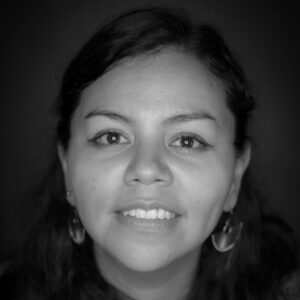
Greta Rico is a Mexican visual artist, journalist and feminist educator focused on issues of gender, climate change, and food. Her work focuses on exploring new social representations in contemporary visual culture. Through her projects she reflects on the care economy, coloniality and the social trauma of current phenomena. Greta is a Leica Partner, she is also a member of the Advisory Committee of Women Photograph, a co-founder of Rosa Chillante and a proud member of Diversify Photo, Foto Féminas, Photographers Without Borders and Femgrafía. She has a Master’s Degree in Feminist Studies and is part of She Source, a panel of experts on gender issues from the Women’s Media Center. Since 2024, Greta has been part of the National System of Art Creators in Mexico, her documentary projects have received grants such as the Leica Women Photo Project Grant, the Bertha Challenge Fellowship, the Women Photograph Grant, the National Geographic COVID-19 Reporting Grant and the Bob and Diane Fund Fellowship among other awards and recognitions.
CARING IN THE FACE OF ABSENCE

Ximena, 16, has suffered nightly anxiety attacks since she was eight. Nicole has lived with stress-induced dermatitis for six years. What they share is a deep wound: both lost their mothers to femicide. In Mexico, this crime takes the lives of ten women every day, according to UN Women, yet its impact – especially on the children left behind – remains largely unseen. Caring in the Face of Absence is a visual investigation into the aftermath of femicide. Through collaborative portraits with families, I incorporate pink motifs to reclaim the pink crosses of Ciudad Juárez – symbols of impunity and loss. Using an aesthetic of tenderness, pink becomes a thread that weaves together trans-generational trauma, emotional scars, and the resilience of orphaned children and their caregivers. In a country where narratives often re-victimise through hyper-violent imagery, this project seeks restorative justice: it is about listening, accompanying a healing process, and inviting society to be part of it. When using the right methodologies – even in a setting of systemic impunity – artistic practices can foster empathy, visibility, and change.
JODI WINDVOGEL
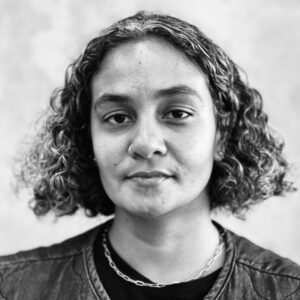
Jodi Windvogel is a South African documentary photographer and filmmaker whose work is rooted in long-form storytelling, often focusing on deeply personal narratives. Their photography explores themes of land, memory, gender, and displacement – always with the intention of challenging stereotypes and reframing how marginalised communities are seen and understood. With a thoughtful, intimate approach, Jodi captures moments of strength and vulnerability, creating space for empathy and honest conversation. They are a member of the African Photojournalism Database (APJD) and African Women Photograph, and in 2023, received the global Fujifilm GFX Grant for their powerful project on femicide in South Africa. More recently, Jodi has been freelancing for international media outlets, continuing to focus on long-term projects that amplify voices too often left out of the mainstream. They are increasingly drawn to ‘post stories’ – those that examine the lingering impact of historical and ongoing events. Through this lens, Jodi invites viewers to reconsider what they think they know, while opening up room for more compassionate and nuanced perspectives.
LIFE UNDER OCCUPATION: INSIDE CISSIE GOOLE HOUSE & CAPE TOWN’S HOUSING CRISIS
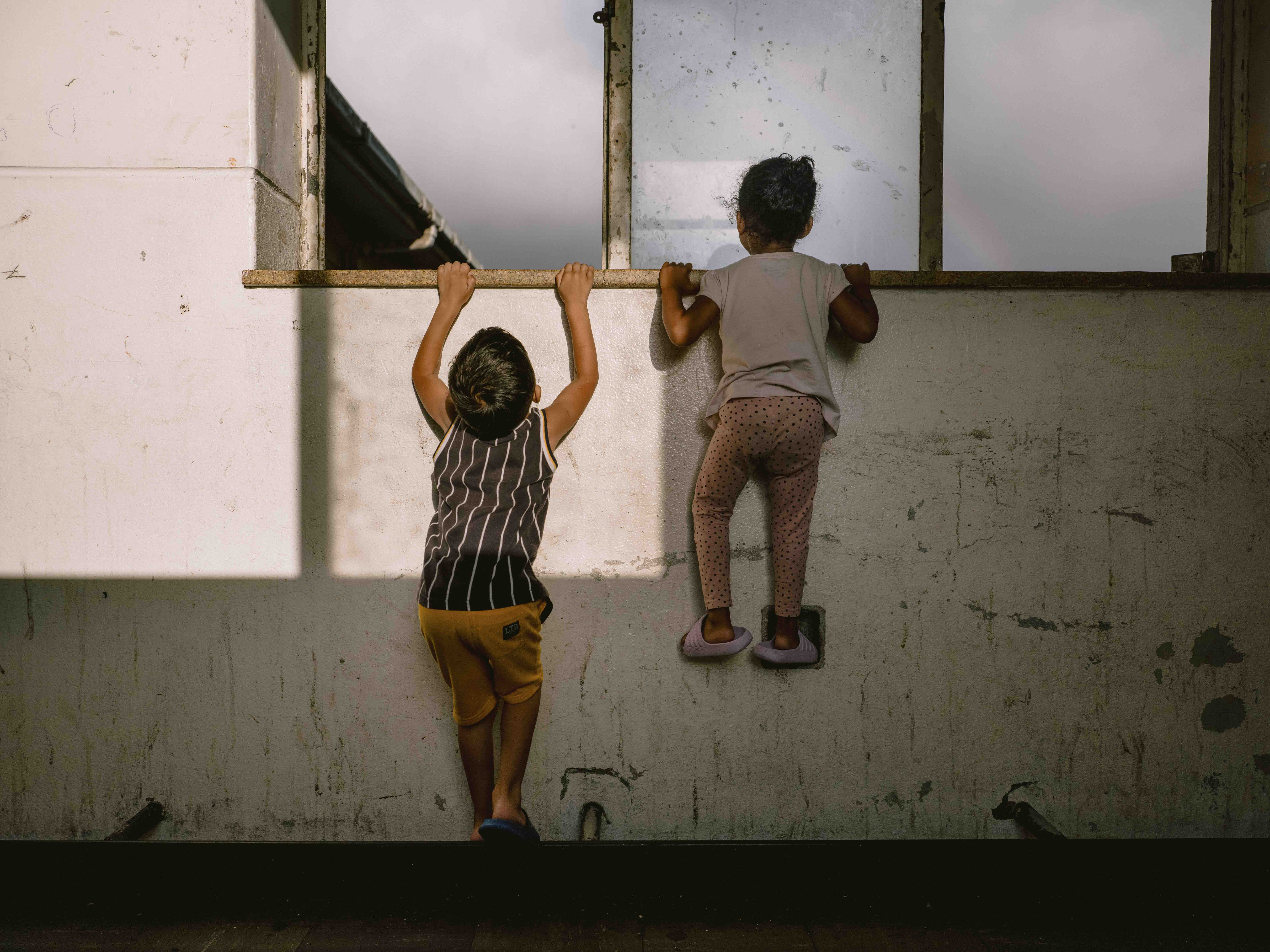
This photo essay documents daily life inside Cissie Gool House, a former public hospital in Cape Town that has been occupied since 2017 by over 1,500 people resisting displacement. Transformed into a self-organised community, the occupation responds directly to Cape Town’s deepening housing crisis. Life Under Occupation focuses on the strength, dignity, and mutual care that residents build in a space marked by legal uncertainty. Rather than framing the occupation as a protest alone, the work highlights it as a solution – an act of urban resistance and survival led by working-class families. By partnering with housing justice organisations, the images will support local advocacy and public education, contributing to wider efforts to rethink housing policy and urban belonging. The project is both personal and political – an act of visual solidarity aimed at shifting narratives and creating space for more inclusive, people-led futures.
LEE-ANN OLWAGE
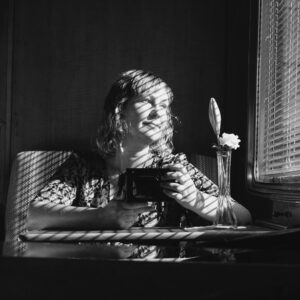
Lee-Ann Olwage is a visual storyteller from South Africa who uses collaborative storytelling to explore gender, identity and community as well as the relationship between humans and nature through intimate portraits and documentary projects. She is interested in using the medium of photography as a mode of celebration and aims to create a space where people she collaborates with can play an active part in the creation of images, they feel tells their stories in a way that is affirming and celebratory. Her work has been featured in National Geographic, The New York Times, Vogue, The British Journal of Photography, Foam magazine, Geo, The Guardian, Atmos, Vanity Fair, Dazed, Wired and IMA Magazine. Notable awards include a World Press Photo Award, 2020, 2023 & 2024, Sony World Photography Awards, 2023, International Women in Photo Award Laurette 2023.
THE BIG FORGET

In Madagascar, where the bonds of family and community run deep, dementia care remains a profound challenge. The realities of limited healthcare infrastructure, cultural stigmas, and a lack of awareness about dementia have created barriers for families attempting to care for loved ones. The lack of awareness and stigma surrounding dementia can lead families to hide their loved ones or isolate them, compounding the emotional and physical toll on caregivers. Masoandro Mody, the only Alzheimer’s organisation on the island is pioneering a family-centered approach to dementia care that aligns with Malagasy values of mutual aid and solidarity. In a country where resources are scarce but the spirit of solidarity is abundant, family-centered care offers a path forward. Through continued education, community engagement, and culturally sensitive support, dementia care in Madagascar can evolve to meet the needs of its people without losing sight of the values that define them.
MARIJN FIDDER
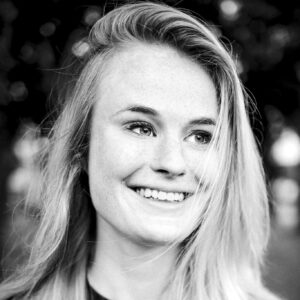
Marijn Fidder (b. 1997) is a Dutch documentary photographer who focuses on current affairs and contemporary social issues. She uses photography to speak on behalf of the voiceless, and to advocate for the rights of all who are vulnerable. Her work has appeared in National Geographic Netherlands, CNN Style, NRC Handelsblad, Het Financieele Dagblad, Evangelische Omroep, GUP New Talent and ZEIT Magazin, among others. Her work has received multiple awards, including from the Zilveren Camera, Global Peace Photo Award and a World Press Photo Award. Based in the Netherlands, Fidder has worked for many years in Uganda, researching disability rights in the country.
INCLUSIVE NATION

The photo essay Inclusive Nation shares the stories of people with disabilities in Uganda. It highlights their everyday challenges, their strength, and the positive changes taking place in their communities. People with disabilities often face social isolation, poverty, and fewer opportunities. However, Uganda is making progress toward becoming more inclusive. In 2020, the country introduced one of the world’s strongest disability laws. This law bans discrimination and gives children with disabilities the right to education and adults the right to work. This is especially important because 80 percent of people with disabilities live in developing countries. Since 2022, this project has collaborated with local organisations that understand the communities and their needs. These groups help guide the storytelling to ensure it is respectful, accurate, and meaningful. The photo essay shows how stronger laws, better education, and more job opportunities are improving lives. It aims to raise awareness and support a more inclusive future.
MARTHA TADESSE
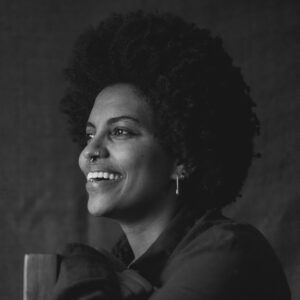
Martha Tadesse is a humanitarian photographer from Ethiopia. Since 2016, she has collaborated with various local and international non-profits, traveling extensively across Ethiopia and other African countries. Her work is driven by a passion for social issues, focusing on human rights, and advocating for girls and women both in Ethiopia and beyond. Currently, Martha is focused on her long-term passion project that explores the intersections of faith and sexuality, and queer resistance within Ethiopia and the diaspora.
WONDERFULLY MADE

In August 2023, a targeted hate campaign in Ethiopia, fuelled by religious groups, social media influencers, and anti-gender activists, led to a wave of mental, emotional, and physical harm against queer individuals. This coordinated effort incited fear and violence, forcing some to flee the country to escape persecution and threats to their safety. Wonderfully Made is a three-part project exploring queer identity through the lenses of faith, diaspora, and home. Each part engages with a different dimension of resistance, survival, and belonging. This series, Wonderfully Made [Home], examines the online violence faced by queer Ethiopians, particularly focusing on their use of social media as both a tool for resistance and a site of vulnerability. The project uses storytelling to challenge the intentional erasure and systemic violence, aiming for dialogue around digital safety and queer resistance.
SYLVIA JARRUS

Sylvia Jarrus is an American freelance photojournalist and photo editor based in Detroit, Michigan. She’s a passionate visual storyteller, dedicated to visually exploring social justice issues, and documenting stories of historically under-represented communities revealing the intimate connections that bind people together. She is dedicated to creating a collaborative, solution-focused approach to photojournalism and hopes her work inspires empathy and understanding from the viewers. Her images have been published in major publications including The New York Times, The Washington Post, The Wall Street Journal, TIME, Teen Vogue, Ford, National Geographic, NPR and others.
ROOTS AND RESILIENCE

Through intimate, warm portraits and documentary moments on digital and medium-format film, Sylvia Jarrus documents the vital work of Black birth workers emphasising themes of family and their impact on maternal health in Detroit, Michigan. Black women are disproportionately affected by the city’s alarming maternal health disparities. A recent study conducted by the Michigan Maternal Mortality Surveillance Committee (MMMS) found that Black women are 4.5 times more likely than white women to die during childbirth, and Detroit’s maternal death rate is three times higher than the national average. Doulas are one integral part of a solution for safer birthing experiences for Black women, by providing essential emotional support to the mothers and family during prenatal, labor, and postpartum phases, reducing stress, improving health literacy, decreasing existing health and racial disparities, and integrating a sense of family and community. Jarrus captures the interconnected lives of Black mothers, and their families and how the dedication of their birth workers impacts their birthing experiences.
TANIYA SARKAR

Taniya Sarkar (b. 1992) is an Indian photographer based in Kolkata, the capital of the Indian state of West Bengal. Her works have been exhibited at Objectifs, Women in Film & Photography 2023, Germany as part of the exhibition ‘CLOSE CONTACT’ in 2021 -2022. She is a student grant recipient for The W. Eugene Smith Memorial Fund (2022), Nazar Foundation Artist Assist Fund in 2023, Inge Morath Award 2021 (Finalist) by Magnum Foundation, Generator Grant by Experimenter 2021, Social Documentary Grant of Murthy Nayak Foundation, and SACAC in 2021. International Center of Photography (ICP) New York, awarded her the most prestigious Mary Ellen Mark Memorial Scholarship to join the One-Year Certificate program in Documentary Practice and Visual Journalism program (2021-2022). She has been selected by World Press Photo to be a participant in the esteemed Joopswart Masterclass 2024. She has worked for Le Monde, Crafts Magazine U.K, European Union and UNESCO.
WHEN I DIVE INTO THE REALM OF YOUR ENDLESSNESS

In Bengal, in the early to mid-18th century, saffron or white-clad mystics from Hindu, Buddhist, and Muslim backgrounds formed a major sect known as Baulism. The project WHEN I DIVE INTO THE REALM OF YOUR ENDLESSNESS documents the lives, roles, practices, and narratives of women who are seeking their own identities within this patriarchal system. As Baul’s practice has transformed in the post-neoliberal era, the project will also examine changes in women’s spiritual, psychological, and cultural journeys.
VICTORINE ALISSE
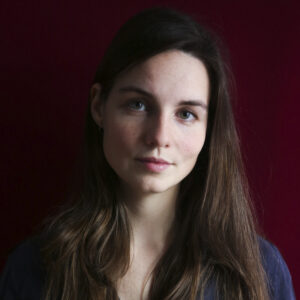
Granddaughter of a farmer, Victorine Alisse has been conducting a documentary project for four years on the disappearance of rural farming communities, with a first chapter in France and a second in Palestine/Israel. Her documentary approach focuses on societal and environmental issues, with human encounters at the heart of her photographic work, which she also pursues through creative residencies offered by art centres such as Dipahane and cultural institutions. She explores new narrative forms, particularly by combining text and images, as seen in the series “Au Grand Air” co-created with JS Saia, which won the Caritas Social Photo Prize in 2021. The following year, she was awarded the Bourse du Talent in the Reportage category for her series “Palestine/Israel: Who Cultivates the Land?”. A member of the Hors Format collective, she regularly collaborates with French and international media such as Libération, Le Monde, and Der Spiegel. Her work has been exhibited in France and abroad.
“WE WILL STAY HERE AS LONG AS THERE IS THYME AND OLIVES”
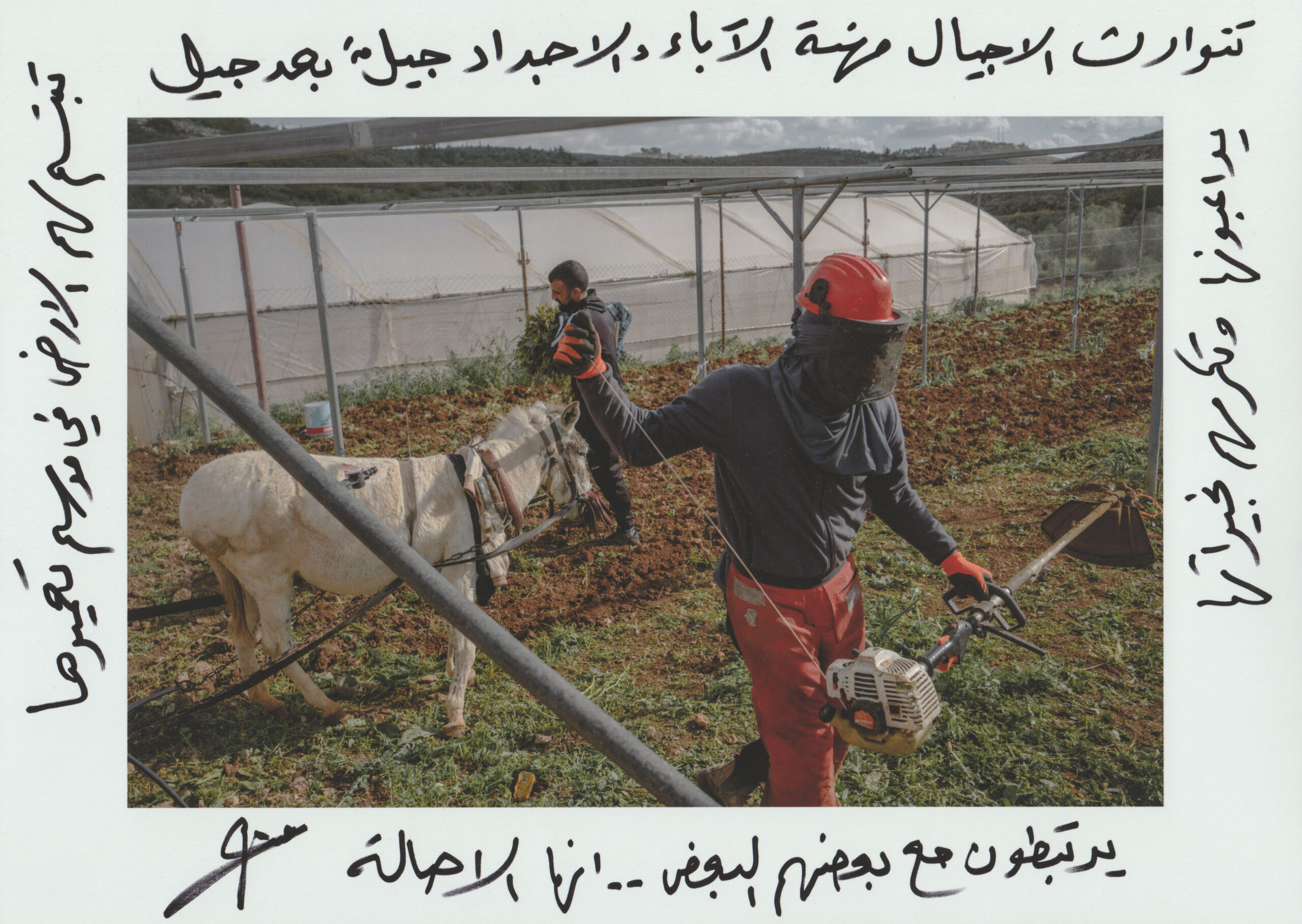
While the fifth Gaza war rages, another war has been waged for years. In Wadi Fukin, in the occupied West Bank, near Bethlehem and the Green Line, Palestinian farmers resist ongoing expropriation. Surrounded by settlements and facing a planned settler road that would annex nearly a third of what remains, villagers endure home demolitions, arbitrary arrests, and restricted expansion – yet farming continues as resistance. This second chapter of We Will Stay As Long As There Is Thyme and Olives highlights their deep emotional ties to the land and the grassroots strategies they’ve developed to remain rooted: women-led food cooperatives, reforestation efforts, and small-scale agriculture. These everyday acts of resilience are quiet yet powerful solutions to forced displacement. By collaborating with community members and local institutions, this project aims to make an impact by humanising the Palestinian struggle, raising awareness, and encouraging global dialogue around land justice, resilience, and the power of community-driven solutions.
MIGHTY CONGRATULATIONS TO THE FOTOAWARD SHORTLIST 2025!
ONCE AGAIN WE RECEIVED A WIDE RANGE OF SUBMISSIONS FROM ALL OVER THE WORLD.
WE WOULD LIKE TO THANK EVERY APPLICANT WHO APPLIED – WE ENDEAVOUR TO MAKE THE SUBMISSION PROCESS STREAMLINED.
WE CONGRATULATE THE SHORTLIST FOR THEIR TALENT, FORTITUDE & COMMITMENT TO CONSTRUCTIVE PHOTOJOURNALISM.
WE EXTEND OUR HEARTFELT GRATITUDE TO NIKON FOR SUPPORTING THIS FOTOAWARD.
WE WILL ANNOUNCE THE WINNER AND HONOURABLE MENTIONS ON TUESDAY 1st JULY.
TO LEARN MORE ABOUT THE SHORTLIST AND THEIR STORIES, PLEASE FOLLOW @fotodocument on Instagram.
THE FOTOAWARDS TEAM
Featured cover photograph © Diana Takacsova

